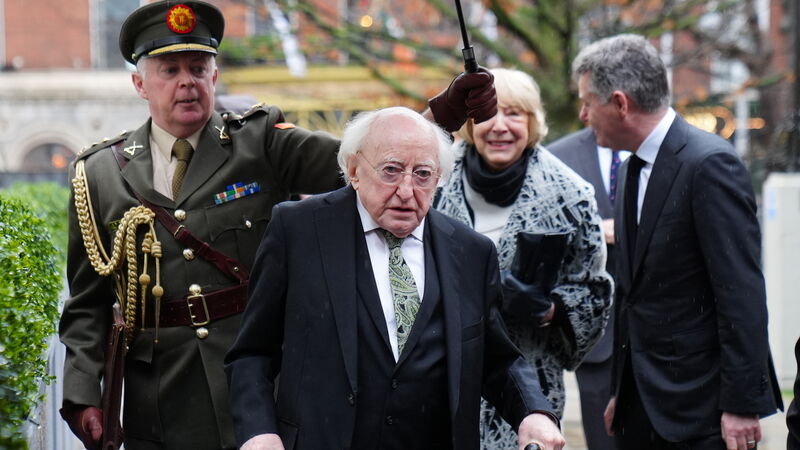Irish Examiner view: Holocaust Memorial Day offers the chance of a reset

President Michael D Higgins and his wife Sabina arriving for the Holocaust Memorial Day event at the Mansion House in Dublin. Picture: Brian Lawless/PA
In a courtyard within a military jail in Acre, members of the Haganah, the Zionist paramilitary organisation, are exercising with prisoners from the Irgun, its terrorist offshoot.













